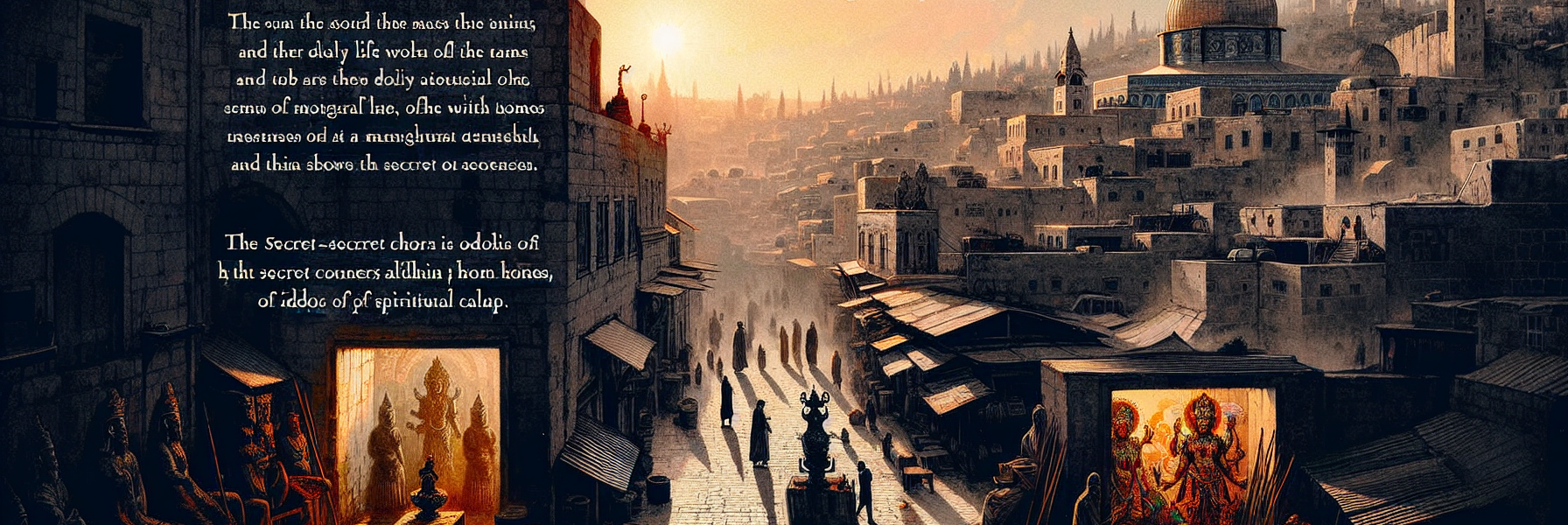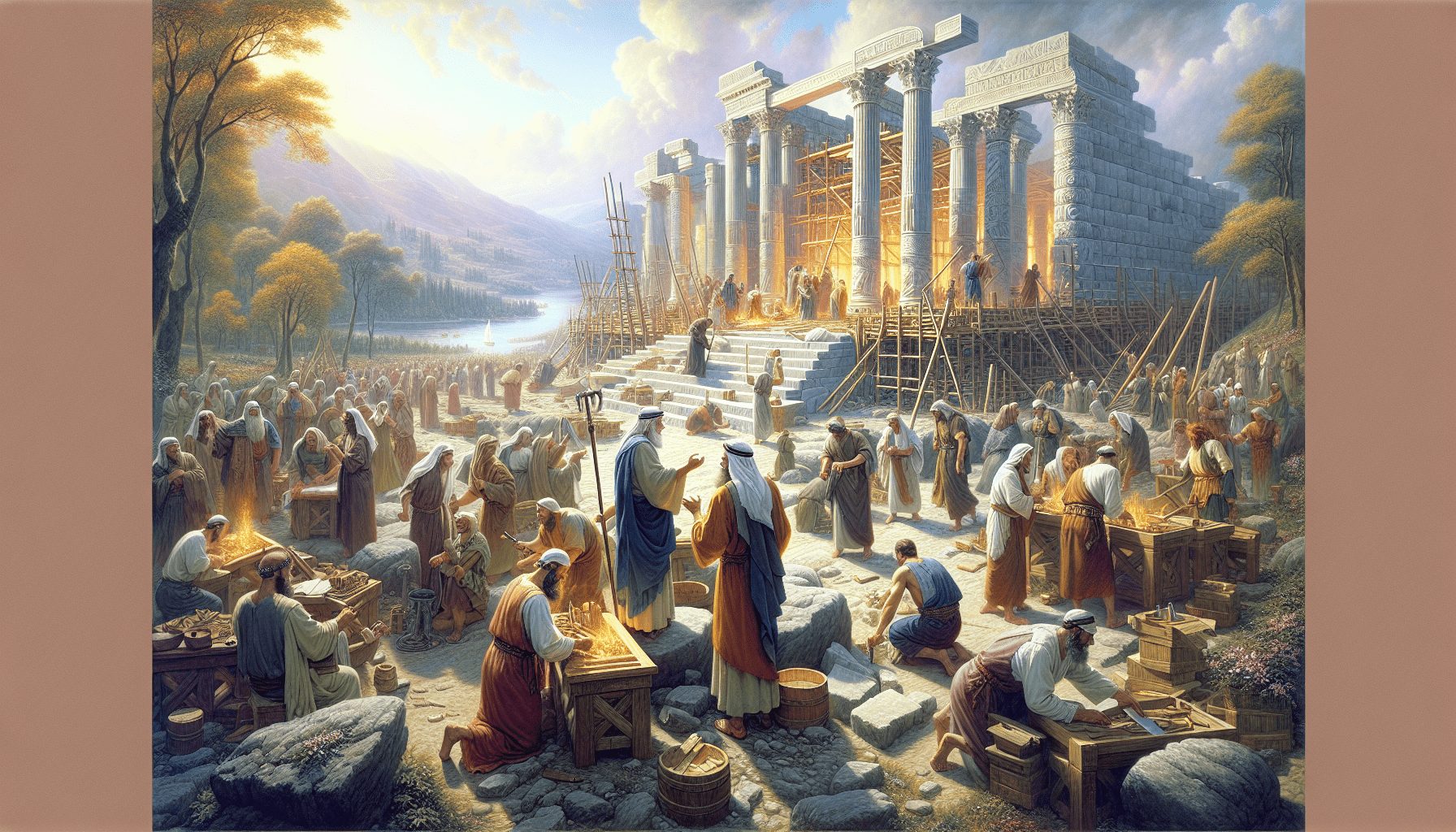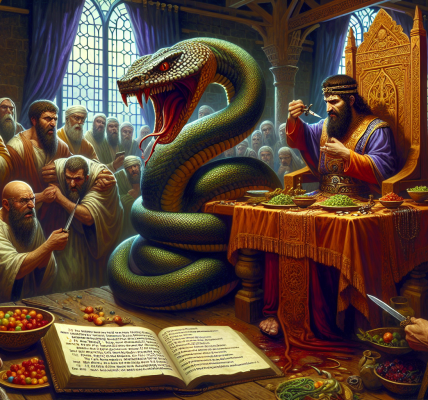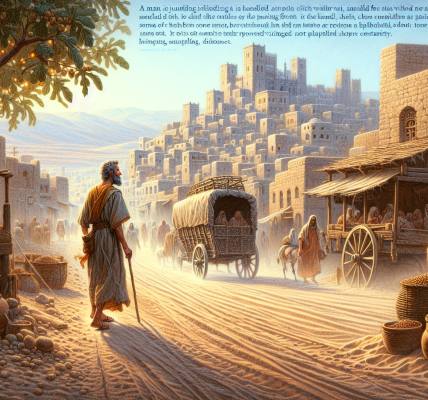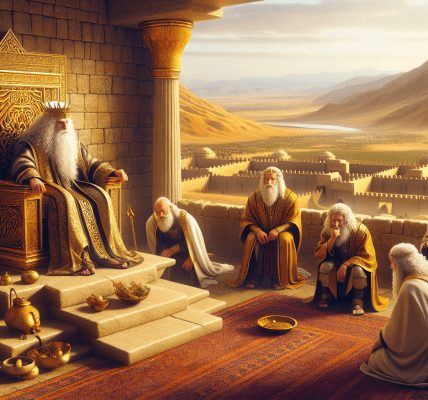**The Day of the Lord’s Judgment: A Story of Zephaniah’s Prophecy**
The sun hung low over the city of Jerusalem, casting long shadows across the cobbled streets and whitewashed walls. The air was thick with the scent of burning incense from the temple, mingling with the less holy odors of the marketplace. Yet beneath the surface of daily life, a deep corruption festered. Idols of Baal and Asherah stood in secret corners of homes, and the people bowed to the stars, forsaking the God who had brought them out of Egypt.
It was in this time of spiritual decay that the word of the Lord came to Zephaniah, a man of noble lineage, descended from King Hezekiah himself. The prophet stood in the courts of the temple, his voice rising above the murmur of merchants and the bleating of sacrificial lambs.
**”Thus says the Lord: ‘I will utterly sweep away everything from the face of the earth!'”**
His words were like thunder, shaking the hearts of those who heard. The merchants paused in their haggling; the priests turned their heads. Even the Levites, busy with their duties, hesitated.
**”I will sweep away man and beast; I will sweep away the birds of the heavens and the fish of the sea, and the stumbling blocks with the wicked. I will cut off mankind from the face of the earth, declares the Lord.”**
A chill ran through the crowd. Some scoffed, whispering that this was just another doom-sayer, but others remembered the warnings of Isaiah and Micah before him. Had not judgment fallen upon Israel for lesser sins?
Zephaniah’s eyes burned with divine fire as he continued. **”I will stretch out my hand against Judah and against all the inhabitants of Jerusalem. I will cut off from this place the remnant of Baal, the name of the idolatrous priests along with the priests, those who bow down on the roofs to the host of the heavens, those who bow down and swear to the Lord and yet swear by Milcom!”**
The accusation struck like a dagger. Many in Judah had grown comfortable in their double-mindedness—offering sacrifices to Yahweh by day, then sneaking away to worship foreign gods by night. They thought the Lord would not see, or worse, that He would not care.
But the Lord saw. And He would not share His glory.
Zephaniah’s voice grew even fiercer. **”The great day of the Lord is near, near and hastening fast! A day of wrath is that day, a day of distress and anguish, a day of ruin and devastation, a day of darkness and gloom, a day of clouds and thick darkness!”**
The imagery was terrifying—no escape, no refuge. Like the floodwaters of Noah’s time, judgment would come suddenly, sweeping away the unrepentant.
**”On that day,”** Zephaniah declared, **”the cries of the mighty warriors shall be bitter, for even they shall stumble in their pride. Neither their silver nor their gold shall be able to deliver them.”**
A wealthy merchant in the crowd clutched his robe tighter, his face pale. He had trusted in his riches, believing they would shield him from calamity. But the prophet’s words stripped away his false security.
Then, with a final, solemn warning, Zephaniah spoke the Lord’s decree:
**”I will bring distress on mankind, so that they shall walk like the blind, because they have sinned against the Lord. Their blood shall be poured out like dust, and their flesh like dung. Neither their silver nor their gold shall be able to deliver them in the day of the Lord’s wrath.”**
Silence fell over the temple courts. Some wept. Others hardened their hearts. But the message was clear: the day of reckoning was coming.
And the only hope was to seek the Lord while He might still be found.
As the sun dipped below the horizon, casting Jerusalem into twilight, the people dispersed—some to repentance, others to defiance. But none could say they had not been warned.
For the word of the Lord had been spoken.
And it would surely come to pass.
